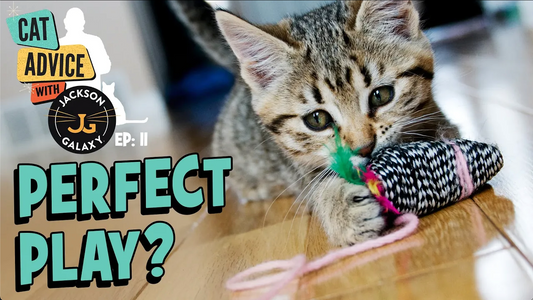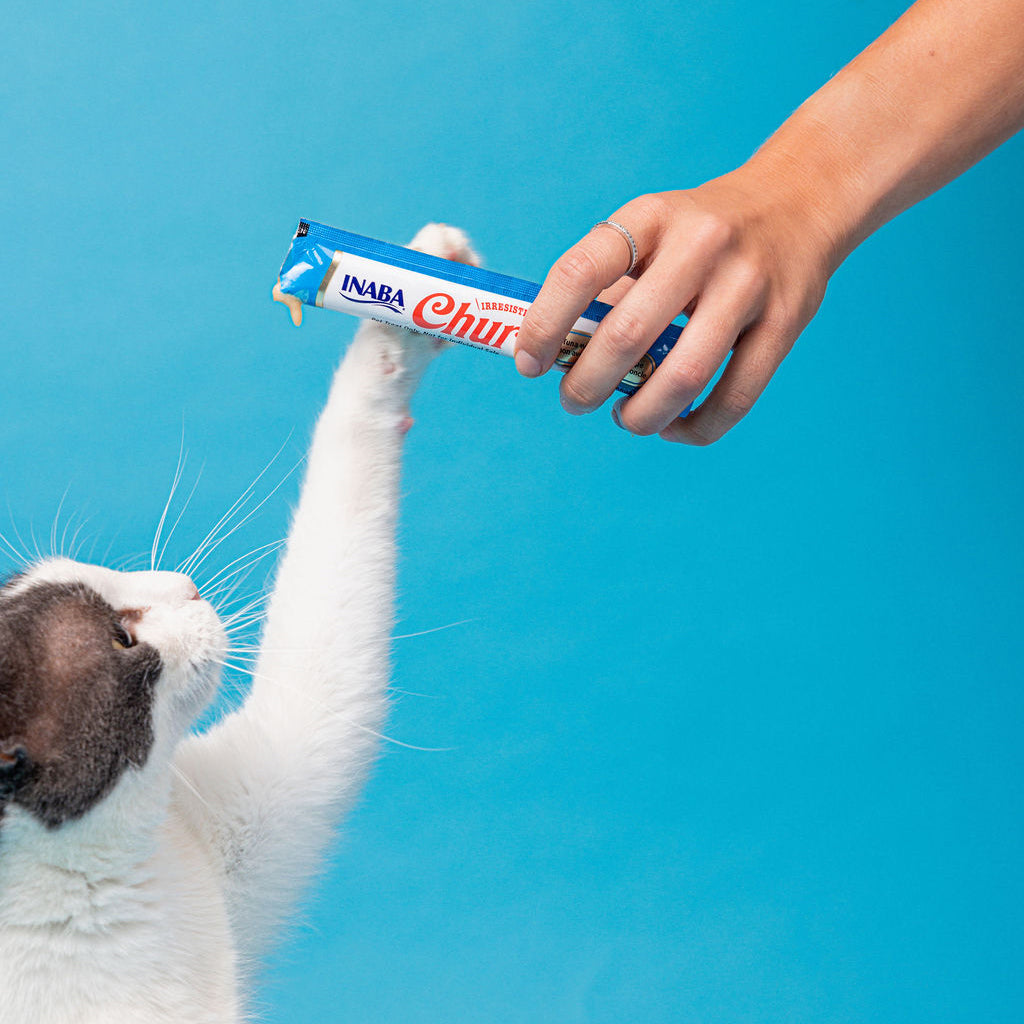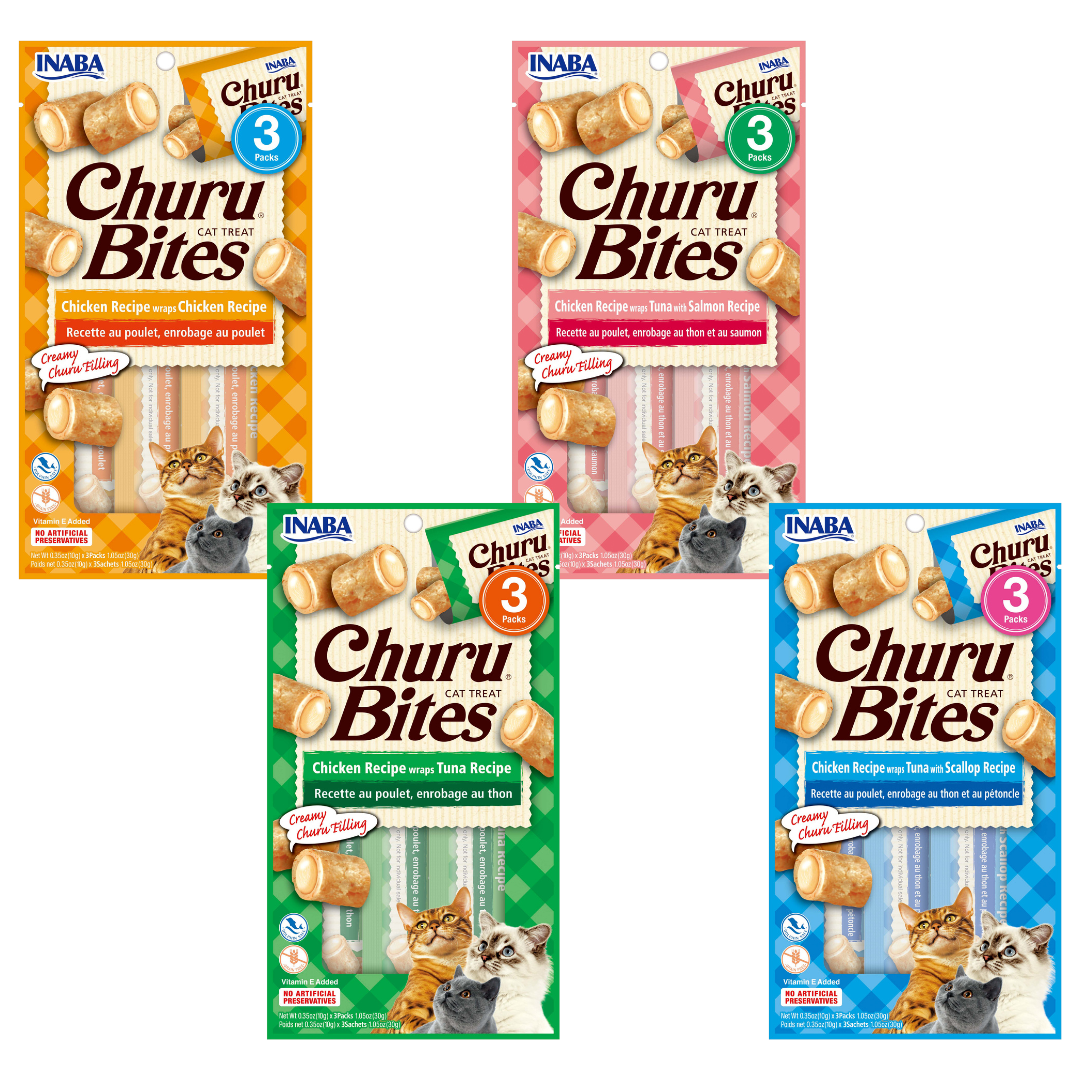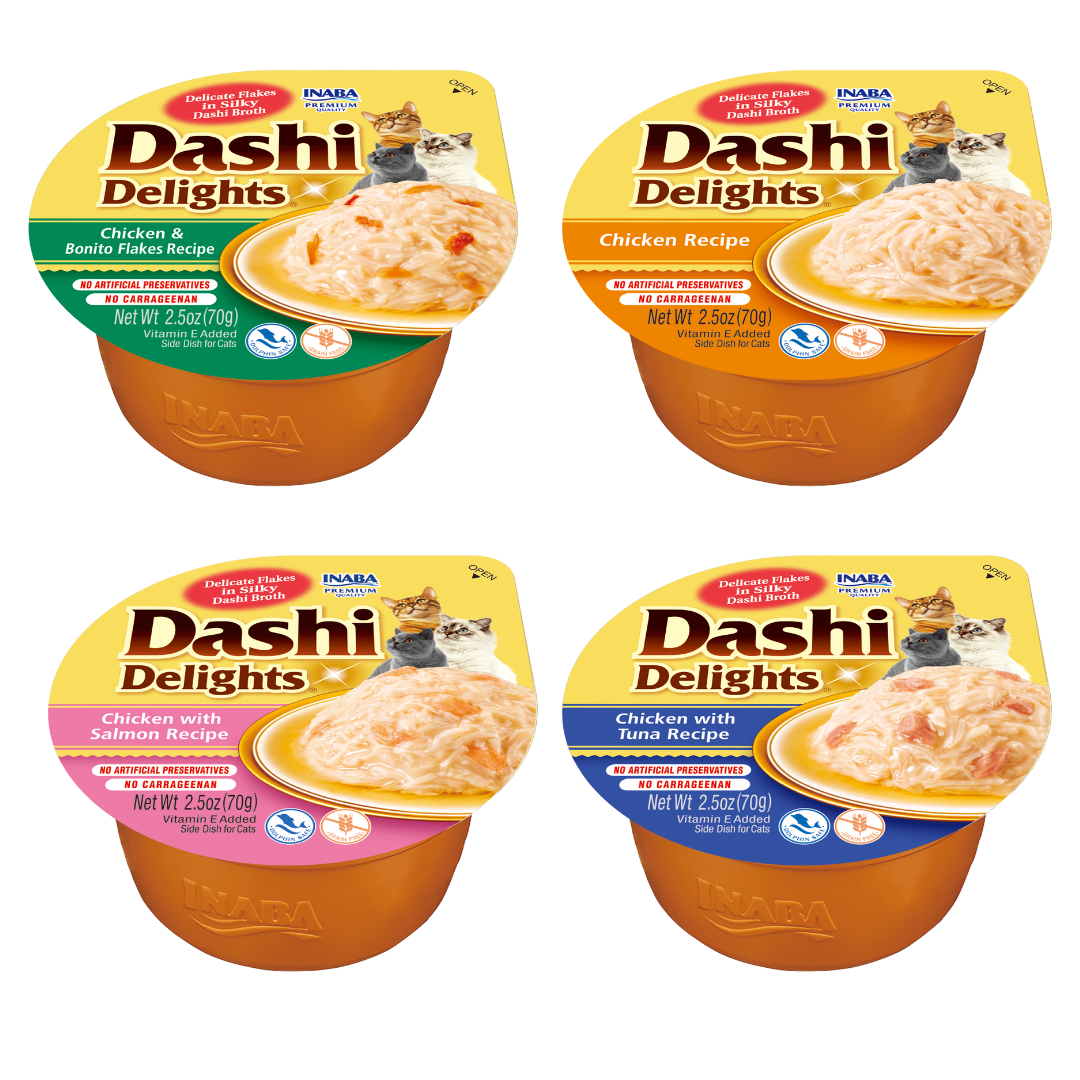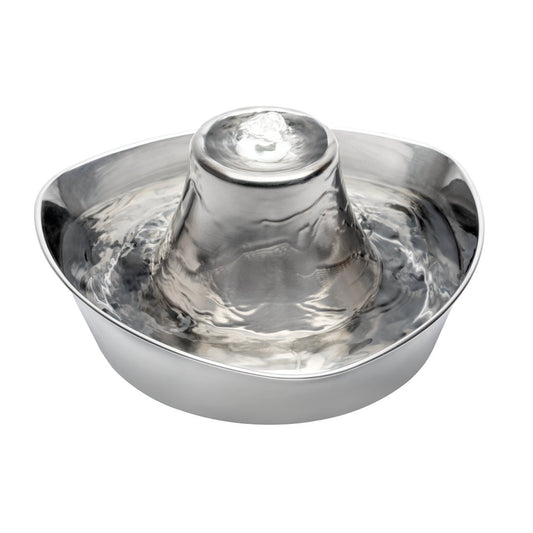The first thing I would tell you if you asked about your cat's odd behavior? Stop free feeding! Learn how you should be using food as a tool with your cat rather than an all-you-can-eat buffet.
How often should you feed your cat?
When I meet people at various events and on the street, I often get the same question:
“How often should I feed my cat? Should I leave food out all the time?”
To that, I answer a resounding NO!
Free feeding - leaving food out for your cat 24/7 - goes against everything cats were designed for, and it undermines the work that we try to do. Read on to find out why I believe mealtimes essential for your cat’s physical and mental wellbeing.
Cats are NOT grazers
Cats were built to eat small meals throughout the day. Think about it: in the wild, food isn’t available all day long. Leaving dead, uneaten prey out in the open would attract other predators. There’s no option to save your leftovers!
Dangers of free-feeding
Giving your cat unrestricted access to food can lead to overeating and obesity - and if you’re free feeding, you’re probably feeding your cat dry food, which is full of starch, carbs, and other things that cats shouldn’t be eating (more info on that here). It’s no wonder that a clinical survey conducted by the Association for Pet Obesity Prevention revealed that nearly 60% of cats in the US are overweight or obese.
The best thing you can do for your cat’s long-term health is to get them on a regular feeding schedule (every 5-6 hours is optimal) with species-appropriate wet or raw food.
Benefits of mealtimes for cats
Cats’ essential primal nature - what I call the raw cat - has been passed down from their wild ancestors. It’s in their DNA. Unlocking the raw cat within is crucial for building your cat’s mojo.
Leaving food out 24/7 messes with the raw cat brain. Cats were designed to hunt, catch, kill, and eat their prey. Food only becomes available to them after they do a certain activity. Mealtimes and treats can motivate a cat into doing (or not doing) what you want them to do.
Scheduled feedings also help litter box problems. If your cat is peeing or pooping outside the litter box, mealtimes give you a fighting chance at knowing when they’re going to eliminate so you can help them get to the litter box.
When I work with clients who are dealing with behavioral issues at home, one of the first things I look at is how they feed their cats. You’ve got to remember that cats are not programmed like dogs - they don’t give a rip about pleasing us! Living with cats means embracing compromise - that’s what makes the human-feline bond so special.



